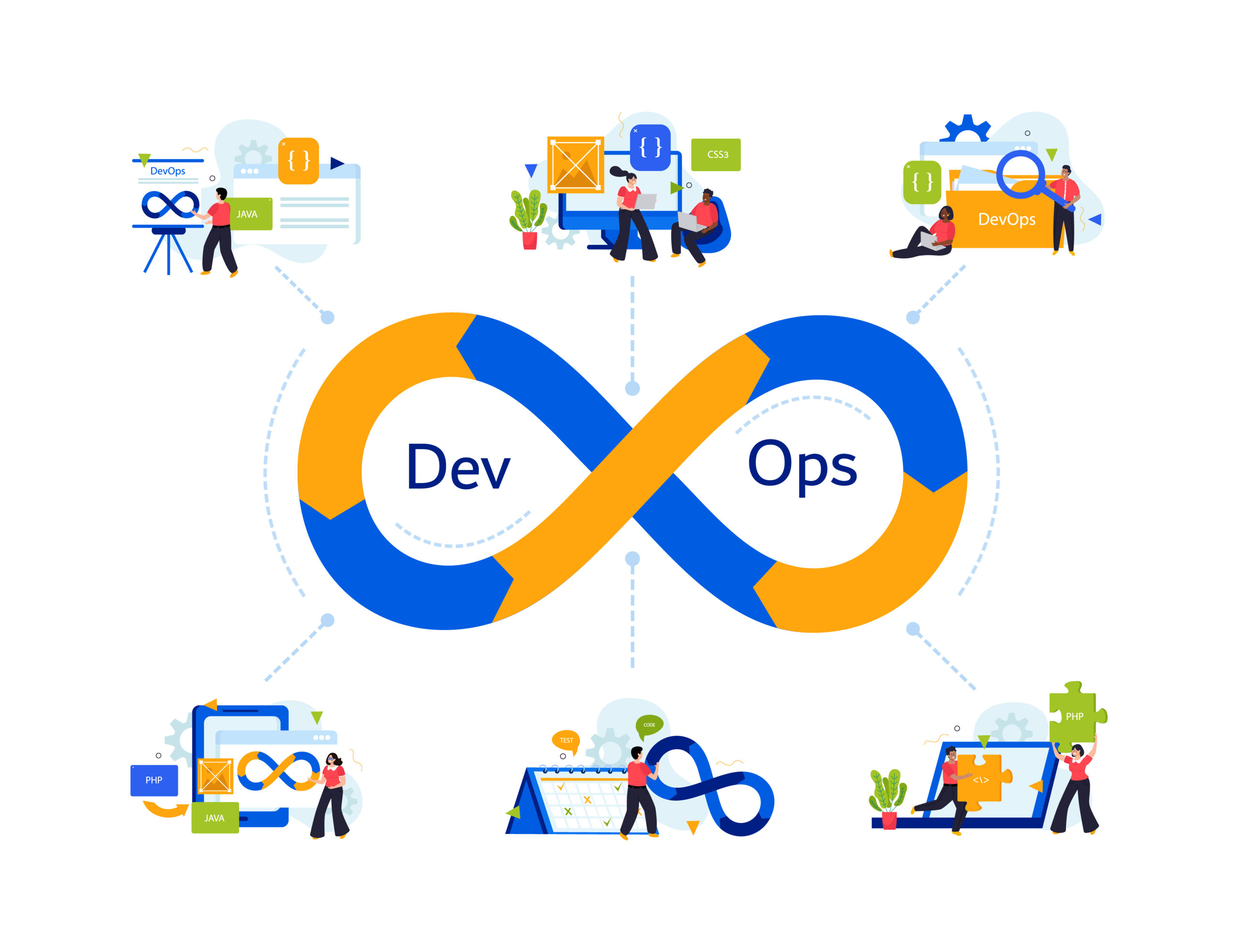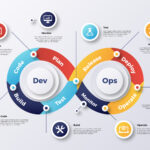In the realm of devops containerization, two names stand out prominently: Kubernetes and Docker. These technologies have impacted the way applications are deployed, managed, and scaled. However, there’s often confusion about their roles and how they complement each other. In this comprehensive guide, we’ll delve into the differences between Kubernetes vs Docker serverless, explore their functionalities, and provide detailed code snippets to illustrate their usage.
Different task : Kubernetes vs Docker
Understanding Docker
Docker is a platform that enables developers to package, distribute, and run applications inside containers. A Docker container encapsulates everything an application needs to run, including the code, runtime, libraries, and dependencies, ensuring consistency across different environments. Here’s a simple Dockerfile for building a Node.js application:
Dockerfile code
# Use an official Node.js runtime as a parent image
FROM node:14
# Set the working directory in the container
WORKDIR /usr/src/app
# Copy package.json and package-lock.json to the working directory
COPY package*.json ./
# Install dependencies
RUN npm install
# Copy the rest of the application code
COPY . .
# Expose port 3000
EXPOSE 3000
# Define the command to run the application
CMD ["node", "index.js"]
With Docker, developers can build, ship, and run applications seamlessly across different environments, from development to production.
Introducing Kubernetes
Kubernetes, often abbreviated as K8s, is an open-source container orchestration platform developed by Google. It automates the deployment, scaling, and management of containerized applications, providing features such as load balancing, self-healing, and rolling updates. Here’s a simple Kubernetes Deployment manifest for deploying the aforementioned Node.js application:
//yaml
apiVersion: apps/v1
kind: Deployment
metadata:
name: nodejs-app
spec:
replicas: 3
selector:
matchLabels:
app: nodejs
template:
metadata:
labels:
app: nodejs
spec:
containers:
- name: nodejs-app
image: your-username/nodejs-app:latest
ports:
- containerPort: 3000
This Kubernetes manifest defines a Deployment that ensures three replicas of the Node.js application are running, automatically managing scaling and self-healing.
Kubernetes vs Docker: Understanding the Differences
1. Abstraction Level:
- Docker operates at the container level, providing tools for building, managing, and running containers.
- Kubernetes operates at the cluster level, abstracting away the underlying infrastructure and providing tools for orchestrating containers across multiple nodes.
2. Orchestration:
- Docker Swarm, Docker’s native clustering and orchestration tool, is simpler and more lightweight compared to Kubernetes. It is suitable for smaller deployments with fewer complexities.
- Kubernetes offers advanced orchestration capabilities, including automatic scaling, rolling updates, service discovery, and load balancing, making it ideal for large-scale, production-grade deployments.
3. Scaling:
- Docker Swarm supports scaling applications horizontally by adding or removing replicas of services.
- Kubernetes provides automatic scaling based on resource usage metrics, allowing applications to scale up or down dynamically based on demand.
4. Ecosystem:
- Docker has a rich ecosystem of tools and services for building, sharing, and running containers, including Docker Compose for multi-container application management.
- Kubernetes has a vast ecosystem with support from major cloud providers, extensive documentation, and a thriving community contributing to its development and enhancement.
5. Complexity:
- Docker is simpler and easier to set up, making it suitable for smaller projects or developers who are just getting started with containerization.
- Kubernetes has a steeper learning curve due to its complexity, but it offers more advanced features and scalability for managing complex, distributed systems.
Kubernetes vs Docker : Code Snippets:
Docker Compose Example:
yaml
version: '3'
services:
web:
image: nginx:latest
ports:
- "8080:80"
api:
image: your-username/api:latest
ports:
- "5000:5000"
This Docker Compose file defines two services: a web server running Nginx and an API service, each exposing different ports for communication.
Kubernetes Manifest Example:
//yaml
apiVersion: v1
kind: Service
metadata:
name: web
spec:
selector:
app: web
ports:
- protocol: TCP
port: 80
targetPort: 8080
---
apiVersion: v1
kind: Service
metadata:
name: api
spec:
selector:
app: api
ports:
- protocol: TCP
port: 5000
targetPort: 5000
These Kubernetes manifests define Services for the web and API components, enabling communication within the Kubernetes cluster.
Conclusion
In conclusion, Docker and Kubernetes are complementary technologies that address different aspects of containerization and orchestration. Docker simplifies the process of packaging and running applications inside containers, while Kubernetes automates the management of containerized applications at scale. By understanding their differences and capabilities, developers can leverage Docker for containerization and Kubernetes for orchestration to build scalable, resilient, and efficient modern applications. Whether you’re deploying a small application or managing a complex microservices architecture, Docker and Kubernetes provide the tools and flexibility you need to succeed in the world of containerized environments.
Kubernetes vs Docker : FAQ
- What is Kubernetes? Kubernetes is an open-source container orchestration platform that automates the deployment, scaling, and management of containerized applications across multiple nodes, providing advanced features like load balancing and rolling updates.
- What is Docker? Docker is a platform for building, shipping, and running applications inside containers, enabling developers to package all dependencies and configurations into a single unit for consistent deployment across different environments.
- How do Kubernetes and Docker differ? Kubernetes operates at the cluster level, orchestrating containers across nodes, while Docker operates at the container level, providing tools for building and running containers. Kubernetes automates scaling, load balancing, and service discovery, whereas Docker focuses on packaging and distribution.
- Which one should I use? The choice depends on your needs. Docker is suitable for containerization and local development, while Kubernetes is ideal for managing containerized applications at scale in production environments.
- Can Kubernetes and Docker be used together? Yes, Kubernetes can manage Docker containers along with other container runtimes. Docker can be used to build and package containers, which can then be deployed and managed by Kubernetes.
- Do I need Docker if I use Kubernetes? While Kubernetes can manage containers from various runtimes, Docker is still commonly used for containerization due to its popularity and ease of use in building container images.
- Is Docker Swarm the same as Kubernetes? No, Docker Swarm is Docker’s native clustering and orchestration tool, offering simpler features compared to Kubernetes. Kubernetes provides more advanced orchestration capabilities and is widely adopted for large-scale deployments.
- Which is easier to learn, Kubernetes or Docker? Docker is generally easier to learn, especially for beginners, due to its simplicity in building and running containers. Kubernetes has a steeper learning curve but offers more advanced features for managing containerized applications at scale.
- Can I use Kubernetes without Docker? Yes, Kubernetes supports various container runtimes, including Docker, containerd, and CRI-O. You can choose the runtime that best fits your requirements and infrastructure.
- Are there alternatives to Kubernetes and Docker? Yes, there are alternatives such as Docker Swarm, Apache Mesos, and Nomad for container orchestration, and container runtimes like containerd and CRI-O for containerization.
These FAQs provide insights into the differences, use cases, and considerations when choosing between Kubernetes and Docker for containerization and orchestration needs.







